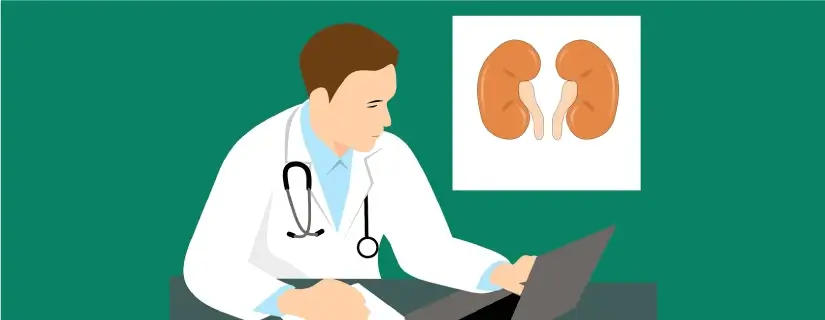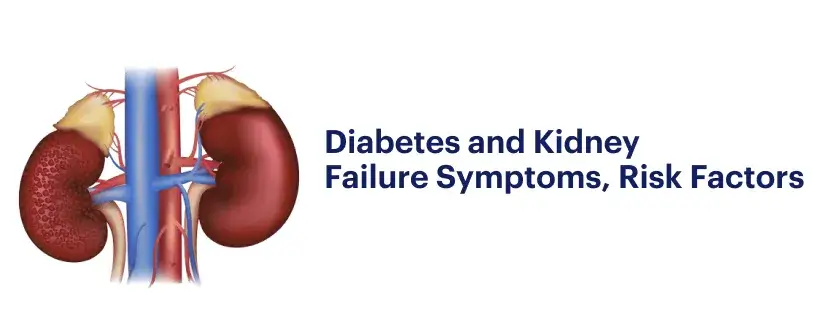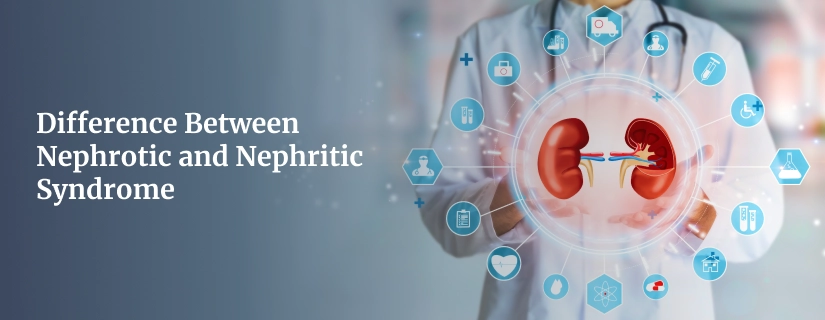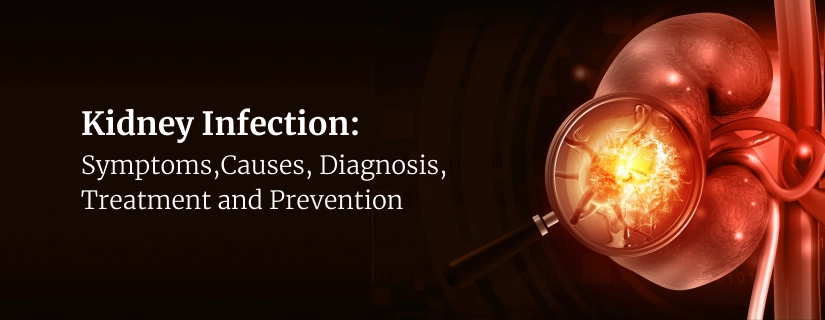-
Doctors
-
Specialities & Treatments
Centre of Excellence
Specialties
Treatments and Procedures
Hospitals & Directions HyderabadCARE Hospitals, Banjara Hills CARE Outpatient Centre, Banjara Hills CARE Hospitals, HITEC City CARE Hospitals, Nampally Gurunanak CARE Hospitals, Musheerabad CARE Hospitals Outpatient Centre, HITEC City CARE Hospitals, Malakpet
HyderabadCARE Hospitals, Banjara Hills CARE Outpatient Centre, Banjara Hills CARE Hospitals, HITEC City CARE Hospitals, Nampally Gurunanak CARE Hospitals, Musheerabad CARE Hospitals Outpatient Centre, HITEC City CARE Hospitals, Malakpet Raipur
Raipur
 Bhubaneswar
Bhubaneswar Visakhapatnam
Visakhapatnam
 Nagpur
Nagpur
 Indore
Indore
 Chh. Sambhajinagar
Chh. SambhajinagarClinics & Medical Centers
Book an AppointmentContact Us
Online Lab Reports
Book an Appointment
Consult Super-Specialist Doctors at CARE Hospitals
How does diabetes affect the kidneys?
Updated on 28 July 2021

Table of Content
- Three types of common diabetes
- How does diabetes lead to kidney disease?
- Are there any risk factors that may increase the chance of developing diabetic kidney disease?
- Can more serious complications emerge in the kidney?
- How to detect harm to the kidney caused by diabetes?
- How to prevent further harm to kidneys while harbouring diabetes?
Diabetes is a condition that occurs as a result of high blood glucose/blood sugar. The underlying cause for this is a build-up of glucose in the blood that doesn’t reach body cells due to a dearth or underutilization of insulin.
Three types of common diabetes
There are three common types of diabetes,
Type 1 Diabetes occurs when the immune system attacks & destroys pancreatic cells, thereby making the body unable to produce insulin. This type of diabetes can occur at any age, though it is usually diagnosed in children and young adults more commonly. An intake of insulin is required by patients on a day-to-day basis for survival.
Type 2 Diabetes is the byproduct of the body not using insulin well. This diabetes is the most commonly found type, seen most often in middle-aged and older people, though it can occur as early as childhood.
Gestational Diabetes is exclusive to women during pregnancy that may develop into type 2 diabetes later in life. This type of diabetes usually subsides after the mother conceives her child. Regardless of the type of diabetes, a high level of blood sugar may lead to problems in different parts of the body. One of the prominent health complications that can arise from diabetes is kidney disease. In fact, diabetes is the leading cause of kidney disease, so much so that one out of every three diabetic adults has kidney disease.
Can diabetes cause kidney disease?
Yes, Diabetes is capable of causing kidney disease, which is known as diabetic nephropathy. Long-term high blood sugar levels can harm the kidneys, which can eventually result in renal issues and, in extreme situations, kidney failure. To lower the risk of kidney disease, diabetes must be managed properly.
How does diabetes lead to kidney disease?
There is a link between diabetes and kidney disease that you need to note. Diabetes may gradually lead to kidney disease when it causes damage to,
- Blood vessels - High blood sugar levels may clog blood vessels and make them narrow. This causes hindrances to the filtering units of the kidney which comprises these blood vessels. Additionally, a type of protein called albumin is able to bypass these filters and end up in urine where it should not be present. All of this results in interference with the kidney’s filtration process and by extension damages the kidneys.
- Urinary tract - The growth of bacteria in the urinary tract is accelerated by high blood sugar levels. These bacteria when lingering in the urine may cause urinary tract infections and infections in the bladder, which may later spread to the kidneys.
- Nerves - Fullness in the bladder can only be felt when nerves in the body relay the message to the brain. However, these nerves may get damaged due to diabetes. This can cause unawareness of when and how full the bladder is. Prolonged pressure from a full bladder may cause damage to the kidneys.
Are there any risk factors that may increase the chance of developing diabetic kidney disease?
The chances of developing diabetic kidney disease are directly proportional to the time period that a person is diabetic. Aside from this, there are other risk factors that can influence the likelihood of diabetic kidney disease:
- Smoking
- Inactivity/ sedentary lifestyle
- Obesity
- Heart disease
- High salt intake
- Family history of kidney failure.
Can more serious complications emerge in the kidney?
People with Type 1 or Type 2 diabetes may develop a more serious kidney-related complication known as diabetic nephropathy. This condition affects the kidney’s ability to filter out solid and fluid waste from the body. Some signs and symptoms include:
- Presence of protein in the urine
- Increased urge to urinate
- Worsening of blood pressure levels
- Swelling in feet, hands, ankles, or eyes
- Nausea, vomiting
- Loss of appetite
- Persistent itching
- Tiredness, lethargy, and fatigue
- Shortness of breath
- Confusion, difficulty concentrating
- Reduced need for insulin/ diabetes medicine.
How to detect harm to the kidney caused by diabetes?
There are several, specific tests conducted prior to diagnosis of diabetic kidney disease. The five prominent ones are: Blood tests monitor the performance of kidneys to determine how well and efficiently they are functioning Urine tests find out if there is too much protein present in urine. High levels of protein may indicate harm/ damage to the kidney Image tests analyze the kidney's structure and size. It usually precedes CT scans and MRI tests to determine the efficiency of blood circulation within the kidneys. Renal function testing is done to assess the filtration rate, capacity, and proficiency of the kidneys. A kidney biopsy may be recommended in case a sample of the kidney tissue is required for further examination of the kidney. Conduct a thorough physical examination with the help of your nephrologist in Hyderabad to understand the state of your health.
How to prevent further harm to kidneys while harbouring diabetes?
Seeking professional help from a kidney specialist in Hyderabad should coincide with your own efforts toward a healthy lifestyle. Some smart choices to make are as follows:
- Limit protein intake - Protein is an integral component in daily nutrition. However, too much of it can be bad for the kidneys. Reducing protein intake can slow down damage to the kidneys. Consult with your nutritionist or dietician to work out a plan that best suits you and your kidneys.
- Stay active - Exercise is important for the functioning of kidneys and overall health. Aim for 30-60 minutes of physical activity every day.
- Sleep well - Make sure to get 7 to 8 hours of sleep every night.
- Take prescribed medicines - Ensure a consistent intake of medicines prescribed by your doctor to regulate blood pressure and blood glucose.

ENQUIRY FORM
SELECT CATEGORIES
-
Neurosciences (16)
-
Neurology (37)
-
Neurosurgery (14)
-
Orthopaedics (48)
-
Oncology (33)
-
Obstetrics and gynecology (51)
-
Pulmonology (23)
-
Urology (20)
-
Nephrology (13)
-
Psychiatry (7)
-
Dietetics and Nutrition (111)
-
General Medicine (63)
-
Cardiac Sciences (30)
-
Vascular & Endovascular Surgery and Interventional Radiology (10)
-
Gastroenterology (46)
-
Endocrinology (23)
-
Plastic Surgery (10)
-
Critical Care Medicine (5)
-
COVID-19 (16)
-
Dermatology (16)
-
Emergency Care (1)
-
Ophthalmology (4)
-
Pediatrics (14)
-
Laparoscopic and Bariatric Surgery (8)
-
ENT (15)
-
Kidney Transplant (1)
-
Liver Transplantation and Hepatobiliary Surgery (5)
-
General Surgery (3)
-
Internal Medicine (5)
-
Medicine Information
Kidney Friendly Diet to Ensure Healthy Kidneys
8 Ways to Keep Your Kidneys Healthy
YOU MAY ALSO LIKE
RECENT BLOGS
-

Direct Anterior Approach in Total Hip Replacement: Advantages and Challenges
10 April 2025
Read More
-

Zinc Deficiency: Signs and Symptoms, Causes, Treatment
9 April 2025
Read More
-

Chest Pain When Coughing: Causes, Treatment and Home Remedies
9 April 2025
Read More
-

12 Health Benefits of Eating Mushrooms
8 April 2025
Read More
-

7 Health Benefits of Blood Donation You Should Know About
8 April 2025
Read More
-

Implantation Bleeding Vs Periods: Know the Difference
28 February 2025
Read More
-

Bloating During Ovulation: Symptoms, Causes and Remedies
28 February 2025
Read More
-

Itching During Dengue: Causes, Treatment and Home Remedies
18 February 2025
Read More
Have a Question?
If you cannot find answers to your queries, please fill out the enquiry form or call the number below. We will contact you shortly.











